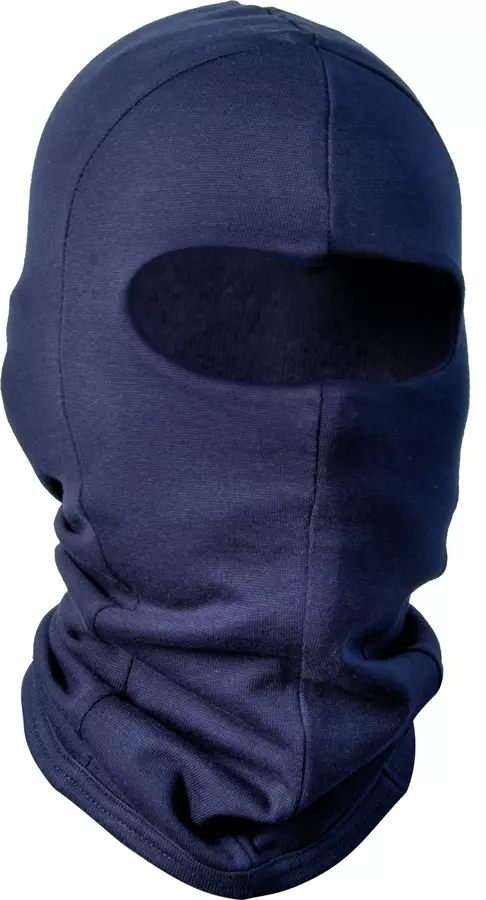This thermal insulation base layer garment is designed for high-risk industrial environments requiring ATEX compliance and flame protection. Constructed from a modacrylic-cotton-elastane blend at 210 g/m², it provides thermal insulation while remaining soft and comfortable against the skin. The garment features a single eye hole design and is undetectable by metal detectors, making it suitable for specialized industrial applications.
Product Features:
- Thermal insulation properties
- ATEX environment compatibility
- Single eye hole model design
- Soft and comfortable fabric
- Non-metal detectable construction
Technical Details:
- Type: Intimo (base layer)
- Weight: 210 g/m²
- Material composition: 59% Modacrylic, 38% Cotton, 3% Elastane
- OEKO TEX certified materials
- Undetectable technology
Recommended Applications:
- Airports
- ATEX environments
- Fireproof applications
- Industrial settings
- Metal and iron and steel industry
- Offshore oil platforms
- Welding operations
Standards:
- ATEX - EX
- EN ISO 13688
- IEC-61482-2+61482-1+61482-1-1
- EN-1149-5/EN-1149-3
- EN ISO 11612 A1 A2 B1 C1
This thermal insulation base layer garment is designed for high-risk industrial environments requiring ATEX compliance and flame protection. Constructed from a modacrylic-cotton-elastane blend at 210 g/m², it provides thermal insulation while remaining soft and comfortable against the skin. The garment features a single eye hole design and is undetectable by metal detectors, making it suitable for specialized industrial applications.
Product Features:
- Thermal insulation properties
- ATEX environment compatibility
- Single eye hole model design
- Soft and comfortable fabric
- Non-metal detectable construction
Technical Details:
- Type: Intimo (base layer)
- Weight: 210 g/m²
- Material composition: 59% Modacrylic, 38% Cotton, 3% Elastane
- OEKO TEX certified materials
- Undetectable technology
Recommended Applications:
- Airports
- ATEX environments
- Fireproof applications
- Industrial settings
- Metal and iron and steel industry
- Offshore oil platforms
- Welding operations
Standards:
- ATEX - EX
- EN ISO 13688
- IEC-61482-2+61482-1+61482-1-1
- EN-1149-5/EN-1149-3
- EN ISO 11612 A1 A2 B1 C1
This thermal insulation base layer garment is designed for high-risk industrial environments requiring ATEX compliance and flame protection. Constructed from a modacrylic-cotton-elastane blend at 210 g/m², it provides thermal insulation while remaining soft and comfortable against the skin. The garment features a single eye hole design and is undetectable by metal detectors, making it suitable for specialized industrial applications.
Product Features:
- Thermal insulation properties
- ATEX environment compatibility
- Single eye hole model design
- Soft and comfortable fabric
- Non-metal detectable construction
Technical Details:
- Type: Intimo (base layer)
- Weight: 210 g/m²
- Material composition: 59% Modacrylic, 38% Cotton, 3% Elastane
- OEKO TEX certified materials
- Undetectable technology
Recommended Applications:
- Airports
- ATEX environments
- Fireproof applications
- Industrial settings
- Metal and iron and steel industry
- Offshore oil platforms
- Welding operations
Standards:
- ATEX - EX
- EN ISO 13688
- IEC-61482-2+61482-1+61482-1-1
- EN-1149-5/EN-1149-3
- EN ISO 11612 A1 A2 B1 C1


